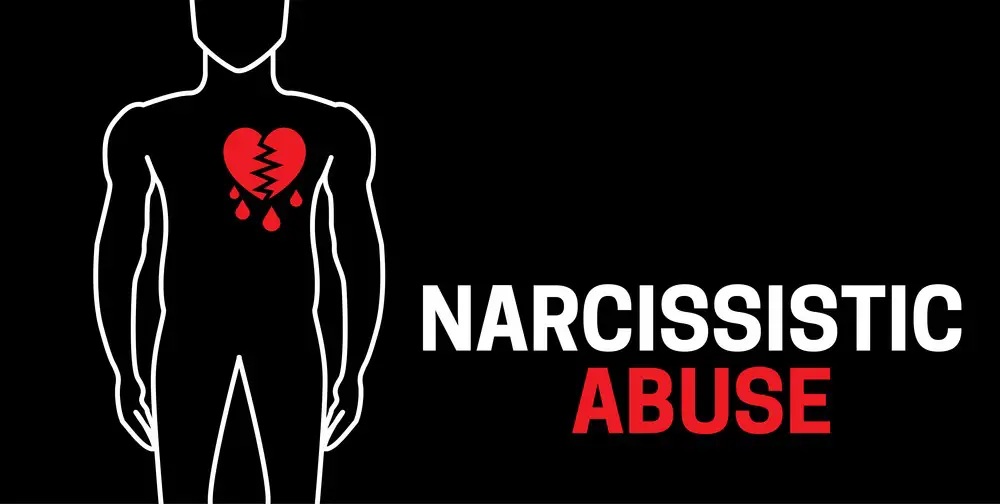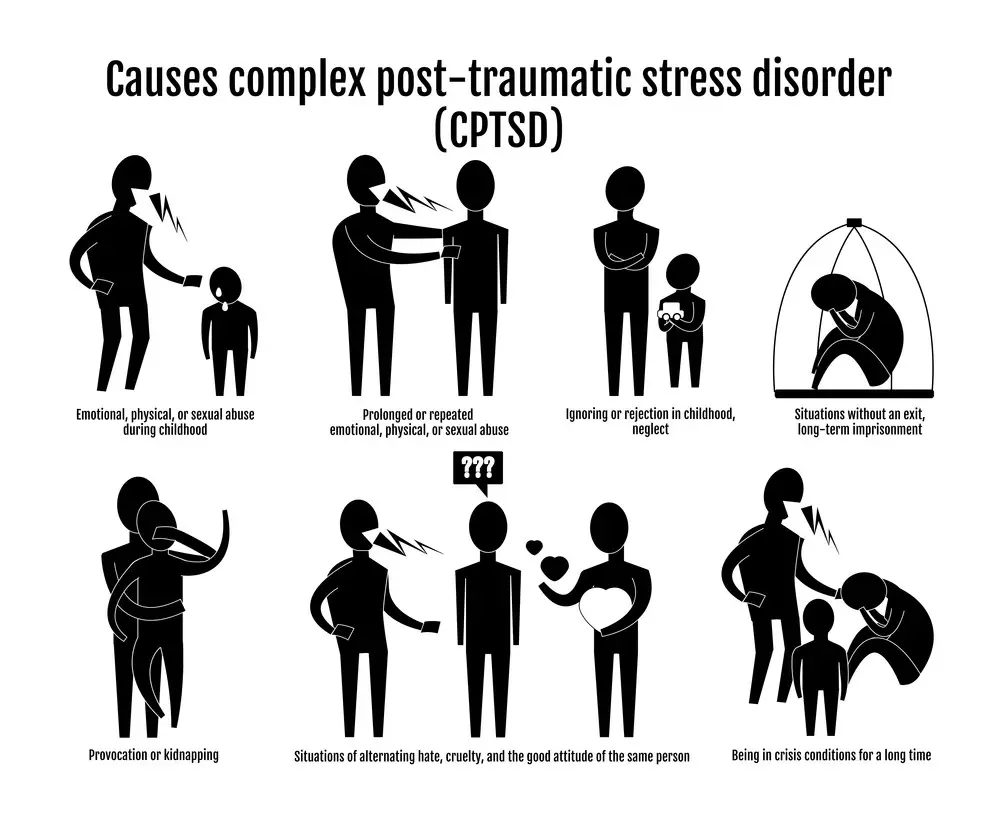As a BetterHelp affiliate, we receive compensation from BetterHelp if you purchase products or services through the links provided
Narcissistic abuse can leave individuals feeling hurt, belittled, and worthless. Those suffering from this mistreatment must find solace and strength from various sources, including spiritual guidance. One such resource is the Bible, which provides several verses addressing emotional and psychological abuse and offering respite for those who have fallen victim to it.
Through understanding God’s love and grace, people can find reassurance that they are valued and cherished despite the malicious intentions of a narcissist. Furthermore, the Bible guides handling pride and arrogance, warning against narcissistic behavior, and detailing God’s response to deception. Setting healthy boundaries is another essential aspect of dealing with narcissistic abuse in one’s Christian life. This includes finding comfort and encouragement through prayer, support from loved ones, and taking necessary steps to protect oneself from further harm.
Key Takeaways
- The Bible offers guidance, comfort, and encouragement for those dealing with narcissistic abuse.
- Verses address pride, arrogance, deception, and God’s response and love in these situations.
- Setting healthy boundaries and seeking support are essential steps in overcoming narcissistic abuse in one’s Christian life.
Also Read: Christian Narcissist: Identifying and Addressing Spiritual Manipulation
A Wolf in Sheep’s Clothing: Recognizing Antagonistic Narcissist’s Subtle Behavior

Understanding Narcissistic Abuse
Narcissistic abuse is a harmful pattern of behavior exhibited by individuals with narcissistic traits. These individuals often have an inflated sense of self-importance, an excessive need for admiration, and a lack of empathy for others. They tend to engage in manipulation, deceit, exploitation, and control, causing emotional and psychological harm to those around them.
One contributing factor to narcissistic abuse is selfish ambition. Narcissists may pursue their goals at the expense of others, disregarding the feelings and well-being of those they interact with. Conceit also plays a role in this form of abuse, as narcissists may view themselves as superior to others and believe they are entitled to special treatment.
Pride is another key characteristic of narcissism, and it can significantly contribute to narcissistic abuse. When narcissists encounter someone who challenges their sense of self-worth or questions their authority, they may resort to harmful tactics to maintain their image of superiority.
Bible verses can provide comfort and guidance for those experiencing narcissistic abuse. The scriptures can guide navigating such relationships and may encourage setting healthy boundaries. Additionally, biblical principles such as humility, forgiveness, and compassion can counteract the damaging effects of narcissistic abuse on both the victim and the perpetrator.
The victims of narcissistic abuse need to recognize the destructive nature of these behaviors and seek support in overcoming their emotional and psychological impact. Understanding the characteristics of narcissism and identifying the warning signs of potential abuse can help individuals protect themselves and maintain a healthy sense of self.
Heal with scripture. Confront narcissism.
Bible Verses on God’s Love and Grace
God’s love and grace are central themes throughout the Bible. These verses serve as a source of comfort and encouragement for those who have experienced narcissistic abuse. They remind us of the compassionate nature of our Creator and the hope we have in His promises.
In the book of John, God’s love is beautifully expressed through the giving of His Son. John 3:16 states, “For God so loved the world that he gave his one and only Son, that whoever believes in him shall not perish but have eternal life.” This passage highlights God’s love and desire for all His children to experience salvation.
The Apostle Paul elaborates on God’s grace in Ephesians 2:8-9: “For it is by grace you have been saved, through faith—and this is not from yourselves, it is the gift of God—not by works so that no one can boast.” Paul emphasizes that God’s grace is a gift bestowed upon us not because of our actions but His love.
Another example of God’s enduring love can be found in Romans 8:38-39: “For I am convinced that neither death nor life, neither angels nor demons, neither the present nor the future, nor any powers, neither height nor depth nor anything else in all creation, will be able to separate us from the love of God that is in Christ Jesus our Lord.” This passage provides a powerful reminder that God’s love is unbreakable and always with us, which can be especially comforting for those recovering from narcissistic abuse.
The Holy Spirit also plays a vital role in demonstrating God’s love and grace. In John 14:26, Jesus states, “But the Advocate, the Holy Spirit, whom the Father will send in my name, will teach you all things and remind you of everything I have said to you.” The Holy Spirit is a guide and comforter, helping believers navigate their faith and understand the depths of God’s love for them.
In conclusion, the Bible is rich with verses that showcase God’s love and grace. God demonstrates His unwavering support and compassion for His children through His Son, the Holy Spirit, and His promises. These passages can provide solace and healing for those who have experienced narcissistic abuse and remind them of their unbreakable bond with their Creator.

Verses Addressing Pride and Arrogance
Throughout the Bible, numerous verses address the issues of pride and arrogance. These verses guide how to recognize and deal with narcissistic individuals. Pride and arrogance are often associated with negative attributes such as haughtiness, wickedness, and the eventual downfall of the person exhibiting these traits.
In Proverbs 16:18, the Bible warns against arrogance: “Pride goes before destruction, and a haughty spirit before a fall.” This verse clearly states the consequences of pride and that a haughty attitude will likely lead to one’s downfall. It serves as a reminder always to maintain humility and avoid being consumed by pride.
Another verse addressing pride is Proverbs 29:23: “A man’s pride will bring him low, but the humble in spirit will retain honor.” This scripture reinforces the importance of humility and suggests that arrogance ultimately results in disgrace. As a counterpoint, humble individuals are likely to retain their honor and live a more fulfilling life.
The wicked, who often display arrogant behavior, is described in Psalm 101:5: “Whoever secretly slanders his neighbor, him I will destroy; the one who has a haughty look and a proud heart, him I will not endure.” The verse points out the toxicity of prideful individuals, detailing the destructive consequences such individuals may face.
In conclusion, the Bible offers many verses that address the issue of pride and arrogance. As believers, reflecting on these scriptures and striving to live humble lives is essential. Eliminating pride from our hearts allows us to grow spiritually and lead lives that honor God.

Warnings About Narcissistic Behavior
In the Bible, there are clear warnings about narcissistic behavior and its harmful effects on the people who encounter it. One of the most notable passages addressing this topic is found in 2 Timothy 3:1-5. These verses describe the characteristics of people in the last days, and many of these traits align with narcissistic behavior.
In these last days, people will become lovers of self and lovers of money. This indicates a self-centered mentality where individuals prioritize their interests and material possessions above the needs of others. They will also be disobedient and ungrateful; showing a lack of respect for authority and displaying an attitude of entitlement.
Furthermore, the verses mention that people will become unholy and heartless, lacking compassion and empathy for their fellow human beings. This behavior makes it difficult for genuine connections and positive relationships to form. In addition, individuals will be unappeasable and slanderous, meaning they are never satisfied and will willingly harm others’ reputations to elevate themselves.
These characteristics continue with descriptions of individuals without self-control and brutal, highlighting the potential for impulsive and violent behavior. They will also be not loving good, treacherous, and reckless, emphasizing their harmful intentions and dangerous actions.
Moreover, such individuals are described as swollen with conceit, a typical narcissistic trait where they believe they are superior and deserve special treatment. They will be lovers of pleasure rather than lovers of God, prioritizing personal gratification over spiritual growth.
Lastly, the passage warns that these people will maintain an appearance of godliness while denying its power. In other words, they might outwardly present themselves as religious, but their actions and beliefs contradict the true teachings of the faith.
In summary, the Bible provides numerous warnings about the destructive nature of narcissistic behavior, encouraging readers to recognize and avoid these damaging traits. By understanding these scriptural insights, individuals can make informed decisions about the people they choose to surround themselves with and maintain healthy relationships.
God’s Response to Arrogance and Deception
God is portrayed in the Bible as a being of ultimate truth and fairness. His response to those who exhibit narcissistic abuse, which often includes arrogance and deception, is characterized by anger and wrath. When individuals deceive or cause harm to others, they face judgment according to biblical teachings.
One of the critical aspects of narcissistic abuse is arrogance. In the Bible, God demonstrates intolerance towards prideful people who put themselves above others. The Scripture states in Proverbs 11:2, “When pride comes, then comes disgrace, but with humility comes wisdom.” God values humility and condemns arrogance, ensuring that those who display such behavior do not go unaddressed.
Similarly, deception is another trait often associated with narcissistic abuse. The Bible is firm on the importance of truth, and God detests dishonesty. In Proverbs 12:22, it says, “The Lord detests lying lips, but he delights in people who are trustworthy.” Deceitful actions and manipulation do not align with God’s teachings, and those who engage in such behavior face the consequences of their actions.
Throughout the Bible, accounts of God’s anger and wrath against abusive and deceitful individuals testify to His intolerance of such behavior. Examples can be found in the story of the Tower of Babel, where arrogance led to the confusion of languages (Genesis 11:1-9), and in the narrative of Ananias and Sapphira, who lied and faced sudden death as a punishment (Acts 5:1-11).
In summary, God’s response to arrogance and deception, often linked with narcissistic abuse, is anger and judgment. The Bible is clear in its message, promoting honesty, humility, and compassion. As believers adhere to these values, they can protect themselves from the harmful actions of those who deceive and maintain a strong connection with God’s teachings.
Bible Verses for Setting Boundaries
Establishing boundaries is a crucial aspect of dealing with narcissistic abuse, and the Bible offers practical guidance on how to set healthy limits. One critical verse illustrating this concept is Proverbs 4:23, which states, “Above all else, guard your heart, for everything you do flows from it.” This passage emphasizes the importance of protecting your emotional well-being by avoiding negative and toxic influences.
Taking control of our interactions is another crucial aspect of setting boundaries. The book of Romans features a compelling verse regarding this: “Do not conform to the pattern of this world, but be transformed by the renewing of your mind…” (Romans 12:2). This verse advises individuals to distinguish themselves from harmful patterns and influences and pursue mental and emotional growth instead.
The Bible also teaches the value of wisdom in handling narcissistic abuse. Proverbs 22:24 says, “Do not make friends with a hot-tempered person, do not associate with one easily angered.” This passage highlights the importance of exercising discernment and choosing our company wisely.
A critical aspect of setting boundaries is discerning truth from deception. Psalm 101:7 is relevant in this context: “No one who practices deceit will dwell in my house; no one who speaks falsely will stand in my presence.” This verse emphasizes the significance of rejecting dishonesty and maintaining truthful communication.
In conclusion, the Bible offers several verses that help individuals dealing with narcissistic abuse establish boundaries, regain control, exercise wisdom, and seek the truth. These principles provide a strong foundation for healing and personal growth.

Dealing with Narcissistic Abuse in Christian Life
In Christian life, dealing with narcissistic abuse can be challenging. The teachings of Jesus Christ call for forgiveness, compassion, and honor towards others, even in the face of mistreatment. Yet, it is also important to recognize that such abuse is often considered a sin.
When encountering narcissistic abuse, a Christian’s first step is to approach the situation with understanding and empathy, acknowledging the abuser’s shortcomings and the hurt they may have caused. Jesus Christ taught the importance of forgiveness, stating, “For if you forgive other people when they sin against you, your heavenly Father will also forgive you” (Matthew 6:14).
In some cases, it might be helpful to talk to the abuser about their behavior, displaying compassion and pointing out how their actions might harm themselves and others. By doing so, one follows Jesus’ teachings: “Love your enemies, do good to those who hate you, bless those who curse you, pray for those who mistreat you” (Luke 6:27-28).
However, this does not mean that a Christian should passively accept abuse or turn a blind eye to the harm caused by a narcissist. It is essential to establish boundaries, protecting oneself and others from toxic behavior while still exhibiting care for the abuser’s well-being. The Bible advises, “Do not be overcome by evil, but overcome evil with good” (Romans 12:21).
As a Christian, one must also remember to honor and respect oneself despite the challenges of dealing with narcissistic abuse. It is crucial to uphold one’s dignity and maintain healthy relationships with others. Jesus Christ instructed His followers to “Love your neighbor as yourself” (Mark 12:31), including treating oneself with kindness and respect.
In conclusion, dealing with narcissistic abuse in Christian life is not easy. Still, by following the teachings of Jesus Christ, a believer can navigate the intricacies of such challenging situations while maintaining forgiveness, compassion, honor, and love for both the abuser and oneself.
Finding Comfort and Encouragement
Finding comfort and encouragement amidst narcissistic abuse can be challenging. However, the Bible offers various verses that provide solace and support in distress. These verses remind us of the importance of kind words, love, joy, and healing through God’s teachings.
One verse that highlights the significance of comfort is 2 Corinthians 1:3-4, which states: “Blessed be the God and Father of our Lord Jesus Christ, the Father of mercies and God of all comfort, who comforts us in all our affliction, so that we may be able to comfort those who are in any affliction, with the comfort with which we are comforted by God.” This verse indicates that God provides comfort and support during trials and encourages us to extend this comfort to others.
When looking for encouragement during difficult times, turn to Romans 8:28: “And we know that for those who love God, all things work together for good, for those who are called according to his purpose.” This passage reminds us that God continuously works for our ultimate good, even amid challenging circumstances.
Another fundamental aspect of overcoming narcissistic abuse is embracing kindness and love. In 1 John 4:7-8, the Bible says, “Beloved, let us love one another, for love is from God, and whoever loves has been born of God and knows God. Anyone who does not love does not know God, because God is love.” This passage highlights the importance of showing love and kindness to others as a reflection of our relationship with God.
Joy is also essential in the healing process. Psalms 30:5 confirms this by proclaiming, “For his anger is but for a moment, and his favor is for a lifetime. Weeping may tarry for the night, but joy comes with the morning.” This verse expresses that although pain is temporary, joy will eventually follow.
In conclusion, reading Bible verses for comfort, encouragement, and guidance may facilitate healing from narcissistic abuse. The teachings within these verses emphasize the value of love, joy, and perseverance through trials, ultimately leading to healing and peace.

Conclusion
In the face of narcissistic abuse, the Bible offers a wealth of wisdom and guidance. The message of salvation demonstrates the ultimate expression of love and liberation, paving the way for change and transformation. In empowering the victims, it is essential to remember that hope is a vibrant force that helps them reclaim their identity and self-worth.
Through the teachings of the Bible, individuals can gain valuable insights to combat narcissistic abuse. Focusing on key principles such as wisdom, humility, and forgiveness can lead to a better understanding of one’s circumstances and aid in healing. Additionally, the scriptures emphasize the importance of seeking support from trusted friends and spiritual communities, as they serve as a vital lifeline during trying times.
Moreover, victims must reflect on the changing concept within themselves and their abusers. While personal growth and self-improvement should be a priority, it is equally essential to acknowledge that the possibility of change lies in the hands of the abuser as well. Encouraging dialogue and promoting self-awareness may facilitate a meaningful transformation.
In conclusion, the Bible’s teachings provide a reliable foundation for coping with narcissistic abuse and fostering a sense of hope and strength. By investing in personal growth and embracing the principles of salvation, change, and wisdom, victims can reclaim their power and break free from the shackles of manipulation and control.
Frequently Asked Questions
What does God say about narcissistic abuse?
God is aware of the suffering caused by narcissistic abuse. The Bible addresses this issue in various verses, such as Psalm 55:22, which tells us to cast our burdens upon the Lord, and Romans 12:19, where it is said that vengeance belongs to the Lord.
How do you biblically deal with a narcissist?
Dealing with a narcissist from a biblical perspective involves setting boundaries and seeking counsel. Matthew 18:15-17 advises addressing the issue directly with the individual and bringing in others to help if unresolved. Ultimately, if the situation remains toxic, it may be necessary to distance oneself, as stated in Proverbs 22:24-25.
What is the spiritual lesson of narcissistic abuse?
Experiencing narcissistic abuse can lead to spiritual growth, such as learning to trust in God’s guidance, finding inner strength, and fostering compassion for others. Verses like James 1:2-4 and Romans 5:3-5 remind us that trials and suffering can develop perseverance, character, and hope.
What does the Bible say about malignant narcissists?
The Bible does not explicitly mention malignant narcissists but describes people with similar traits in passages such as 2 Timothy 3:1-5. This passage warns of those who are self-centered, boastful, and without empathy, cautioning believers to avoid such individuals.
How will God judge a narcissist?
God will judge everyone, including narcissists, based on their actions and the condition of their hearts. Verses like Matthew 12:36-37 and Revelation 20:12 emphasize that everyone will be accountable for their words and deeds and will be judged accordingly.
Scriptural way to deal with a narcissistic husband
When dealing with a narcissistic husband, it is important to find strength in prayer and seek wisdom from scripture. 1 Peter 3:1-2 encourages wives to show respect for their husbands, even if they are unbelievers, so that the wives’ conduct may win them over. Additionally, seeking counsel and support from fellow believers is advised, as suggested in Proverbs 11:14.
- Stress Management: What is the Relationship Between Stress and Addiction? - June 28, 2024
- Exploring Techniques to Maintain a Healthy Lifestyle without Drugs - May 28, 2024
- How Acupuncture Helps Treat Chronic Fatigue Syndrome - May 28, 2024
This site contains affiliate links to products. We will receive a commission for purchases made through these links.






